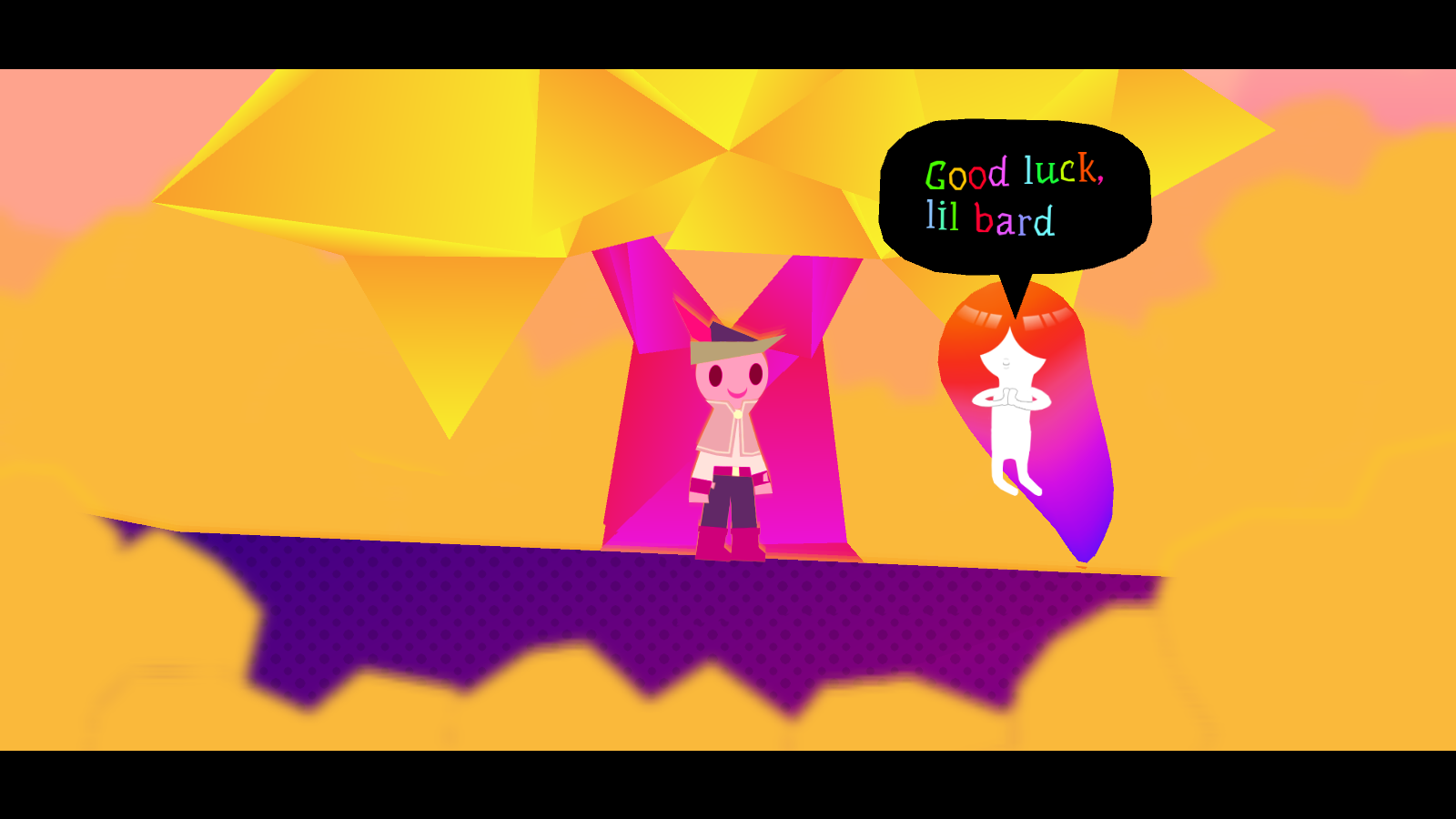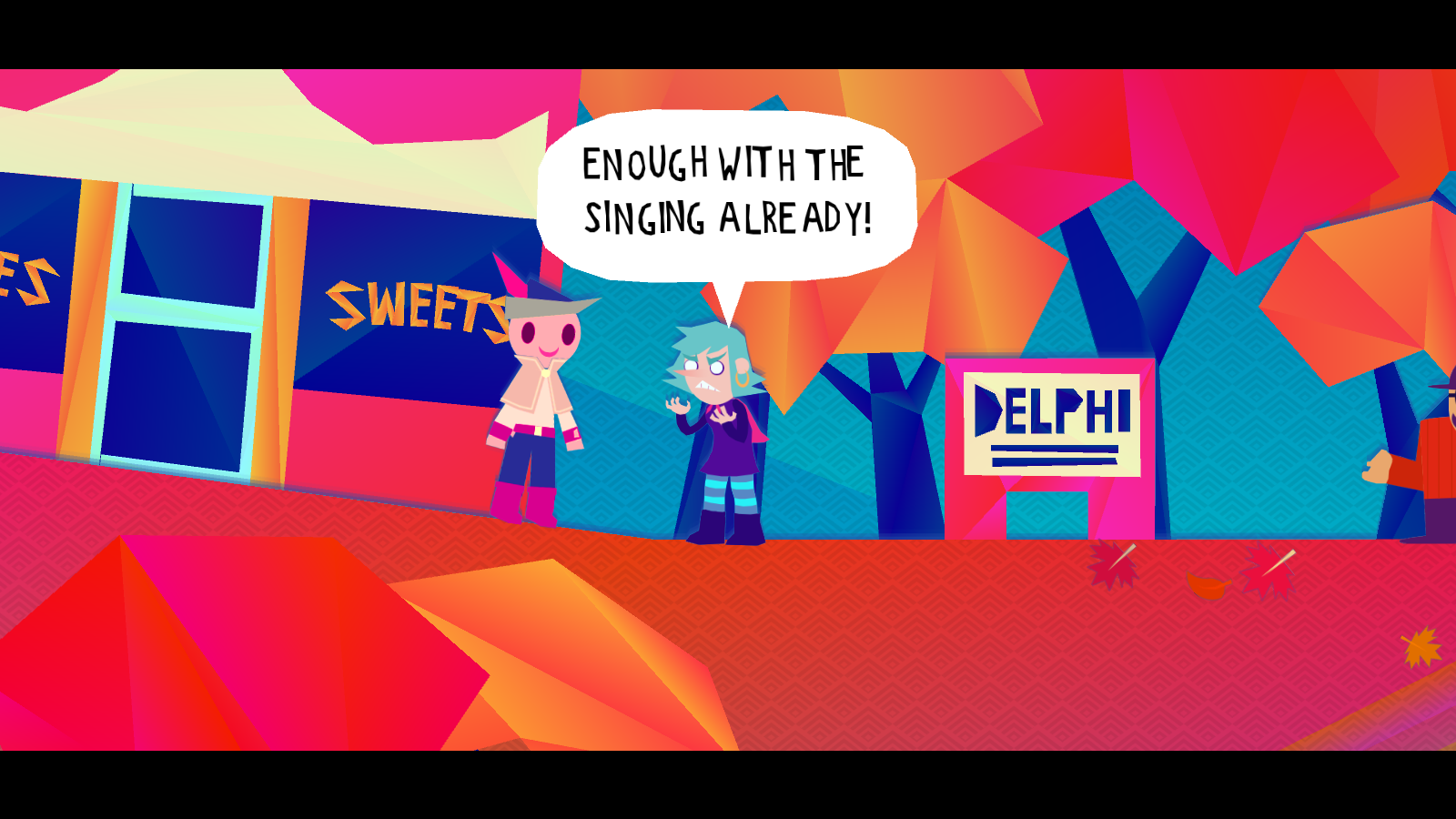Wandersong is a deeply impressive game. Usually when we talk about impressive games its because of their draw distance, detail of their models, or other technical wizardry. Wandersong is impressive because of how dogmatically it pushes positivity and tries to make you feel good. We reached out to Greg Lobanov, the designer of Wandersong to talk more about how 2018's cheeriest game came to be.
Let’s start this off right: Who are you and what is Wandersong?
I'm Greg Lobanov, an indie game designer... I make colorful silly games in Game Maker. I've made tons in a variety of genres but I keep coming back to adventures and storytelling. Wandersong is my most ambitious game to date, a musical adventure where you play as a bard and use singing to help people.

Wandersong is a game where you sing at your problems, and generally make the world a better place through non-violent means. Why did you want to make a peaceful game?
I've been on a personal journey to be a more compassionate, empathetic person and I wanted to explore that in my work. Taking a step back, I think it's really important for us as creators to explore these possibilities, because we reinforce really ugly ideas about the world when we tell stories where only the strongest people get what they want in the end. That's not the society we live in today.
Plus, to be honest, I found it a really interesting challenge. It's so natural to solve game design and storytelling problems with violence... when I blocked myself from that option, I kept finding interesting new ways to go. That friction became very much a part of the story of the game.
You launched a Kickstarter campaign to fund the game back in 2016. How has the game changed since then?
At its heart, not very much. I followed through on the tone, message, feeling and basic plot structure that I had in mind when I launched the Kickstarter. But between then and now there were an uncountable number of tiny details I had to figure out and decide on the way. Back in 2016 I'd just have a note in my notebook like "The bard climbs a mountain," which turned into an hour's worth of gameplay here in 2018.

You’ve also been pretty open about your development cycle. What’s it been like letting the world see your process?
When I was younger, I got a LOT out of seeing others' process and learning about how people made games. This is a funny game to namedrop in a Wandersong interview, but God of War in [2005] came with a "making of" documentary that I fondly remember for getting me excited to make video games. So I see it as an important responsibility to give back, and pass my knowledge down and encourage more people to get creative and make things. I hope that being open about my process helps that.
You’ve made several games before Wandersong, what did you bring to the development process from these past projects?
All of that experience contributes in tiny little ways, even when the games are wholly different. From a technical perspective, I was able to figure out a lot of complicated systems and stuff in Wandersong relatively quickly thanks to all my built up knowledge from past work. But I think most importantly, my design experience has lent me a really solid understanding of how games make us feel, and how to control the feeling of my games. I think that can be felt in Wandersong, which shape-shifts between different structures and genres and styles in the goal of creating a really specific emotional arc.
Finally, what do you want players to take from Wandersong?
My minimum goal is to make someone's day better. My ambitious hope is that we'll enact positive change in people's lives, give them inner strength and tools to better understand themselves and live a happier life. I'm really happy to say that it feels like we accomplished this already, based on some of the very emotional and grateful reactions we've gotten from players :)
This interview has been edited for clarity.
Did you like this post? Tell us
itch.io is an open marketplace for independent game creators. It's completely free to upload your content. Read more about what we're trying to accomplish and the features we provide.
Leave a comment
Log in with your itch.io account to leave a comment.